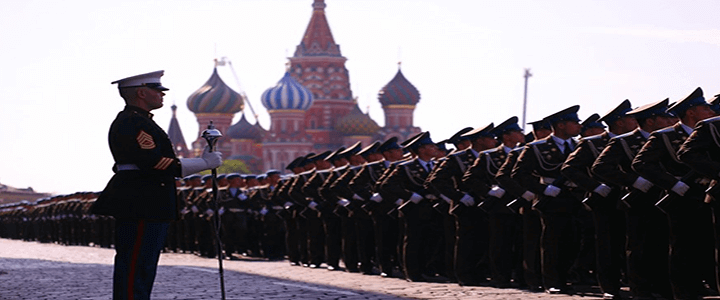The nerve agent poisoning of former Russian spy Sergei Skripal and his daughter Yulia may prove to be Russia’s biggest overextension and its most serious miscalculation. As evidence mounts in the case against the government of newly “re-elected” Russian President Vladimir Putin, his government’s almost comical performance on the world stage has exposed his regime’s lies.
Putin thought his disinformation machine had so perfected its ability to sow doubt in the western world that he could settle an old score. Killing a turncoat in his adopted country with a chemical agent only produced in Russia would send a signal to every other former spy living in exile: the Kremlin will get its revenge, and it does not fear the repercussions, because the world will believe its lies.
But instead, 28 countries and the NATO headquarters have expelled 150 Russian diplomats, and the U.S. imposed its most serious round of sanctions yet. The latest sanctions take aim squarely at the “Russian oligarchs and elites who profit from [the country’s] corrupt system,” freezing the assets of seven individuals, including two Russian government officials and Putin’s son-in-law, and those of several companies they control.
Spies Recover; Russia’s Reputation unlikely to
Although the Skripals remain hospitalized in the English town of Salisbury, they continue to make an unlikely recovery from their exposure to the deadly agent. By almost all accounts, Novichok, several times more potent than other nerve agents, should have killed the pair quickly. But according to Salisbury District Hospital’s medical director Christine Blanshard, Sergei is “responding well to treatment, improving rapidly, and is no longer in a critical condition.”
Yulia herself released a statement Thursday through the Metropolitan Police, revealing that she has been conscious for a week, and her “strength is growing daily.” The latest leaks suggest the CIA and Britain’s MI5 security agency are discussing providing the pair with new identities and resettling them in the U.S., where they would be able to live with more anonymity.
Meanwhile, on the international stage, the chances of Vladimir Putin’s regime recovering from the self-inflicted damage are dwindling.
A foreign policy meltdown
The British government has grown ever more confident in its assessment that the Russian government itself is responsible for the attack. Foreign Secretary Boris Johnson, writing in the Sunday Times of London, repeated earlier assertions that the UK’s intelligence community determined the Russian state was directly responsible for the attack. Even though the head of the defense research laboratory at Porton Down, Gary Aitkinhead, said his lab itself had not identified the agent’s source, leaked details of a British briefing for allies revealed that the government believes Russia produced the Novichok at its chemical facility in Shikhany, about 500 miles southeast of Moscow.
But at both the Organization for the Prohibition of Chemical Weapons and the United Nations Security Council, Russian government representatives sought to deflect blame, even suggesting the the U.S. or the U.K. itself were responsible for the attack. The OPCW’s governing body rebuffed Moscow’s attempts to include itself in the investigation, a request that Britain said “would have helped Russia disguise its culpability.”
What we’re witnessing are the first cracks in the wall of disinformation the Russian government has built around itself.
Moscow has grown so used to its disinformation campaigns yielding results that it has begun to believe its own lies. It thinks that the masses will now believe anything it says. In what Johnson called a “the torrent of absurdity,” the Kremlin’s counterattacks referenced, among other things, British television crime shows and the literary classic Alice in Wonderland. Call it the “I saw it on CSI defense.”
But because of the “fake news” coverage in the U.S. since the election, the world is far less inclined to believe the Russian denials than it was before — which wasn’t really that much to begin with. Russia’s veto power in the Security Council will ensure there are no UN-sponsored actions, but when it comes to finance, the rest of the world allows America’s lead. These oligarchs are now, outside of Russia, financial pariahs.
Things will get worse for Putin’s inner circle before they get better. You can bank on it.




